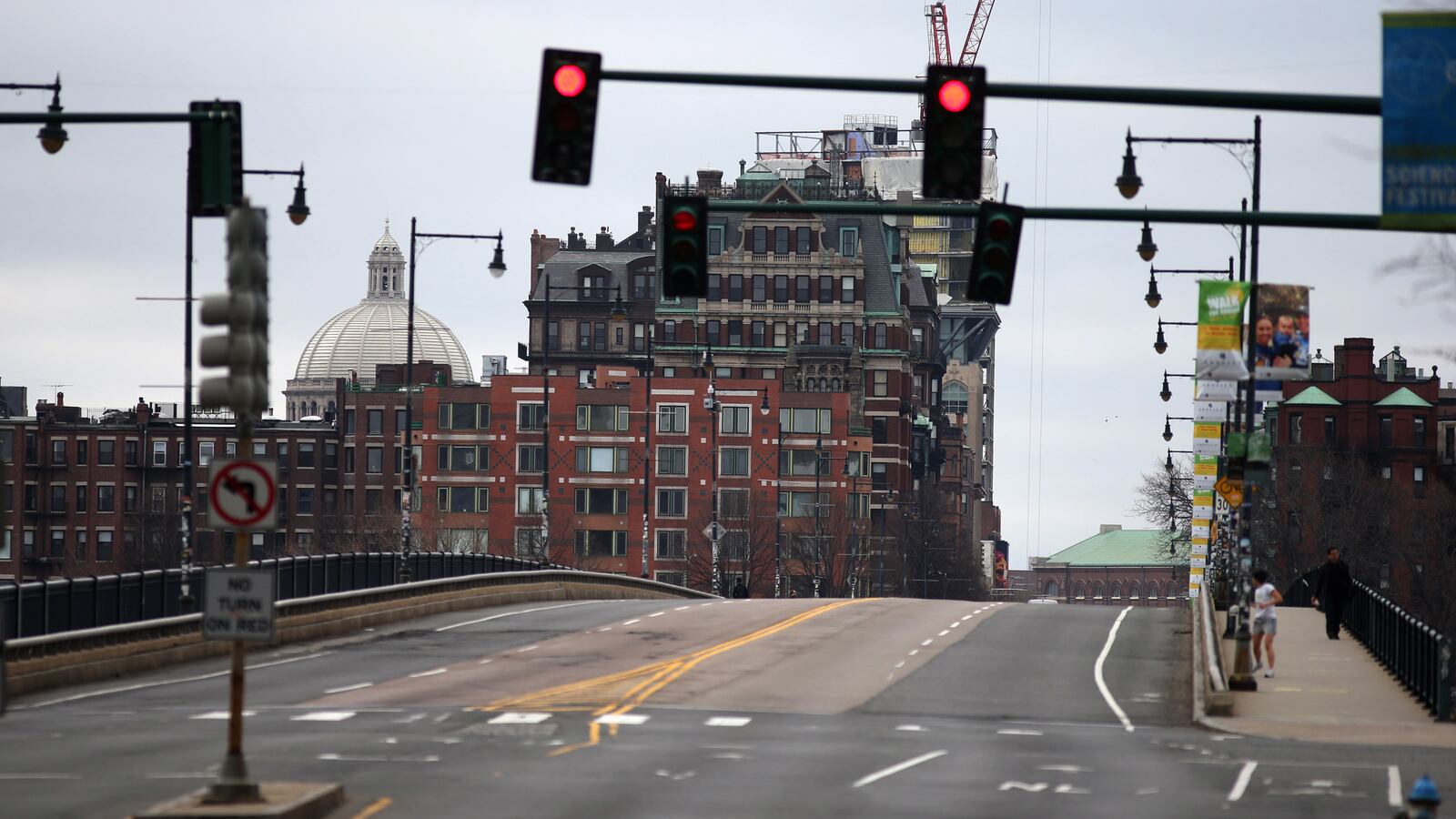Homeland-security experts say Boston’s police, firefighters and hospitals responded brilliantly to Monday’s terror attacks—culminating in the 4.6 million-person city lockdown on Friday—a key test of urban preparedness, though the primary suspect remains at large.

Law-enforcement and counter-terrorism officials have been planning such a response since the World Trade Center attacks of 2001. In 2004, a cabinet-level group known as the Homeland Security Council released a paper detailing 15 nightmare scenarios covering everything from biological and chemical weapons attacks to natural disasters. The twelfth scenario is titled “Explosives Attack: Bombing Using Improvised Explosive Device.”
In the simulation, there were multiple attackers, including a truck bomb, suicide bombers and the home-made bombs known as IEDs. All of it took place inside an enclosed sports arena.
“There was a lot of concern about the use of IEDs domestically,” said Evan Wolff, who in 2004 was a senior adviser at the Department of Homeland Security for infrastructure protection and today is a senior partner at the law firm Hunton & Williams. “It was something in the planning scenarios and the discussions with the private sector. It obviously has proven to be a difficult threat to mitigate.”
That planning in many ways paid off. “The lessons we have all learned from 9-11 have made a huge difference in how we respond to these things,” said David Paulison, a former chief of the Federal Emergency Management Agency. “Boston uses a unified command system. You are sharing ideas, who is doing what, so there is no confusion like there was during Hurricane Katrina.”
Frank Cilluffo, the director of George Washington University’s Homeland Security Policy Institute, also praised some of the early decisions from the FBI. “Look how fast things unfolded when they came out with these photos,” he said, referring to the decision by the FBI Thursday to broadcast rough video of the two main suspects in the bombing, Tamerlan and Dzokhar Tsarnaev. “It caused the perpetrators to hastily plan and make mistakes,” Cilluffo said.
Since the September 11 attacks, the FBI and the Department of Homeland Security have also developed a number of programs at preventing home-grown terrorists from committing acts of terrorism. The FBI, for example, has increased the resources it has devoted to sting operations would-be terrorists in the United States, relying heavily on confidential informants and others. The Bureau and other U.S. government agencies also monitor well-known jihadist web forums.






